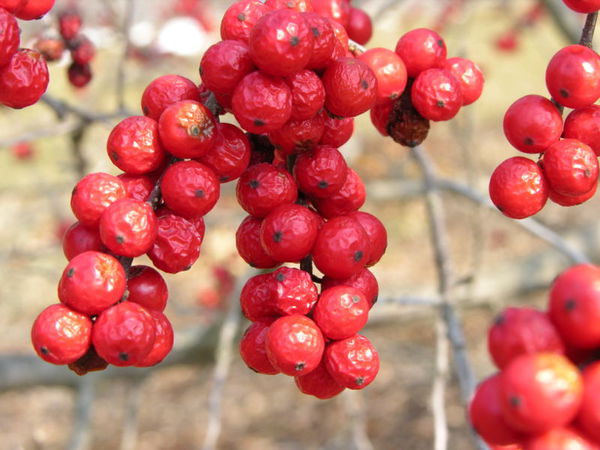
Common Name: Black Alder | Scientific Name: Ilex Verticilata

Family Name: Aquifoliaceae
Introduction
Black alder is a tonic plant, used in the past to stimulate the body to heal itself. It was thought to stimulate the production of blood cells and more. When the body was not able to heal itself, black alder was administered to jump start the process.
Resources
Notes from the Eclectic Physicians
Notes from the Eclectic Physicians
1874: Scudder
Prepare a tincture of the recent bark of the black alder, in the proportion of 35viij.to alcohol 50%Oj. Dose from gtts,v.to 3ss.
This remedy is a stimulant to the digestive and blood making organs, and may be advantageously employed for the general purposes of a tonic. But beyond this, it influences the vegetative processes,probably thourh the sympathetic system of nerves, strengthening the circulation, aiding nutrition, and the removal of waste. We have used it but little, yet the testimony in its favor is such, that we strongly recommend its trial.
1883: Scudder: (tonic)
(The bark and berries of Prinos Verticillatus – U.S. )
Preparation – Tincture of Prinos.
Dose – From five drops to half a drachm.
Therapeutic Action – The Black Alder is tonic, alterative, astrongent, antiseptic, and anthelmintic. It is highly valued by many for its medicanal virtues. The bark has been employed in intermittents as a substitute for cinchona, but its febrifuge powers are feeble. The berries have been used with some advantage in intermittents. For this purpose one pint of the berries may be macerated in half a pint of proof spirits and half a pint of water until the strength is extracted, when the juice is to be expressed and sweetened. The dose is half a wineglassful every two hours between the paroxysms.
It is sometimes exhibited as an astringent and tonic in chronic diarrhoea, chronic dysenter, and whenever there is relaxation of the intestinal exhalants. It is more frequently employed as an alterative and antiherpetic agent in cutaneous diseases, and in various cachectic habits of body.
1898: Felter and Lloyd – PRINOS BLACK ALDER
Action, Medical Uses, and Dosage – Black alder is tonic, alterative, and astringent. It strengthens the circulation, improves nutrition, and aids in the removal of waste material, thus effectually aiding the vegetative processes. It has been used with good effect in jaundice, diarrhoea, gangrene, and all diseases attended with great weakness. It has also been of service in dropsy. Two drachms of the powdered bark and 1 drachm of golden-seal, infused in a pint of boiling water, and, when cold, taken in the course of a day, in doses of a wineglassful, and repeated daily, has proved very valuable in dyspepsia. Externally, the decoction forms an excellent local application to gangrene, to indolent ulcers, some affections of the skin, etc. The berries are cathartic and vermifuge, and form, with cedar-apples, a pleasant and effectual worm medicine for children (see Juniperus Virginiana). Dose, of the powdered bark, from 1/2 to 1 drachm; of the decoction, 4 fluid ounces, 3 or 4 times a day. A tincture of the recent bark (3viii to alcohol, 76 per cent, Oj) may be given in doses of from 5 to 30 drops. Black alder bark is an ingredient of several alterative syrups.
Disclaimer: The author makes no guarantees as to the the curative effect of any herb or tonic on this website, and no visitor should attempt to use any of the information herein provided as treatment for any illness, weakness, or disease without first consulting a physician or health care provider. Pregnant women should always consult first with a health care professional before taking any treatment.
